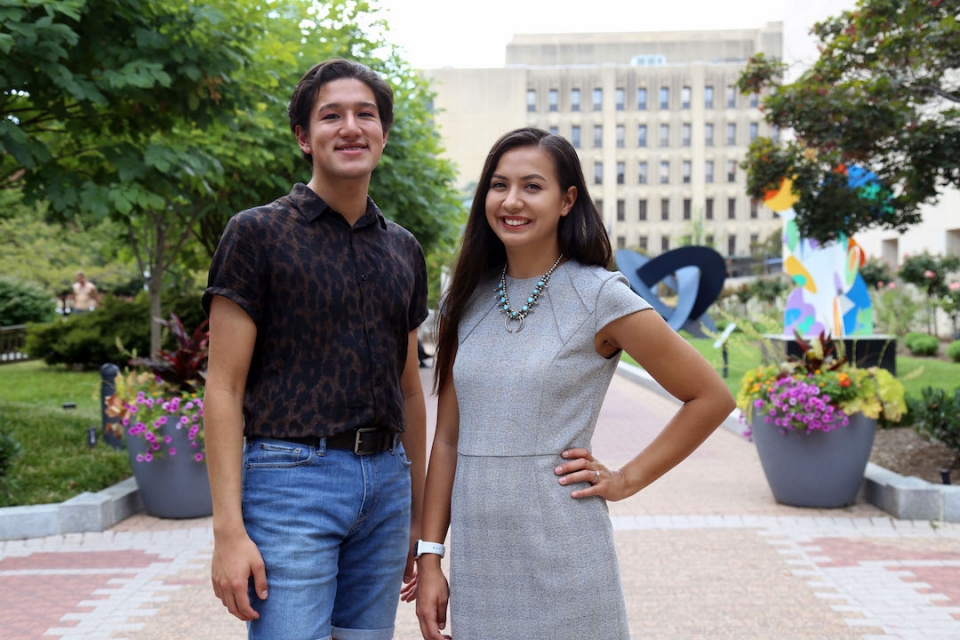Jordan Oglesby, a Navajo Nation member, thought when she graduated from law school she would advocate for New Mexico’s underserved indigenous communities as an attorney. She had long been drawn to policy and politics, however, and those interests led her to participate this summer in the Native American Political Leadership Program (NAPLP) at the George Washington University.
Ms. Oglesby, one of nine students selected for this summer’s NAPLP cohort, also was one of two of the program’s students to intern in the congressional offices of Rep. Debra Haaland (D-N.M./member of Laguna Pueblo), and Rep. Sharice Davids (D- Kan./member Ho-Chunk Nation). Those two women were both elected in the 2018-midterm elections as the first Native American women to Congress.
“I had never considered opportunities on Capitol Hill,” said Ms. Oglesby, a rising third-year student at the New Mexico School of Law who interned in Ms. Haaland’s Capitol Hill office. “But this program made me believe that we should push for more diverse voices, not only serving as a congresswoman but also as staffers and various positions for people to make a difference in those offices.”
For the past 14 years, NAPLP has placed over 200 Native American, Alaska Native and Native Hawaiian students from across the country in internships on Capitol Hill, in policy and tribal organizations and nonprofit sites across D.C.
The program is run by the GW’s AT&T Center for Indigenous Politics and Policy (AT&T CIPP) within the College of Professional Studies.
“It’s an opportunity for our youth to see Native Americans across the country and across the world serving in different capacities,” said Wendy Helgemo, AT&T CIPP director. “This is so important because in many ways Native American people remain invisible in our society or remain as caricatures as sports team logos and on commercial products.”
NAPLP participants are provided full scholarships to spend a spring or summer semester in D.C. and take courses at GW on the public policy decision-making process, governmental functions and politics in a democratic society.
The program also helps students secure internships based on their self-identified interests.
The second NAPLP student, Nolan Arkansas, interned with Ms. Davids. Arkansas, a member of the Eastern Band of Cherokee and an ethnicity and gender studies undergraduate student at Yale, hoped to learn more about the government-to-government relationship between Native American tribes and the federal government.
“One of the biggest focuses Native lawmakers have today is strengthening that relationship,” Mr. Arkansas said.
He said tribes’ relationships with the federal government are “critical to tribal governments having political sovereignty.”
As a congressional intern, he said, he witnessed how those relationships are formed as numerous tribal members and advocates visited the office each day.


